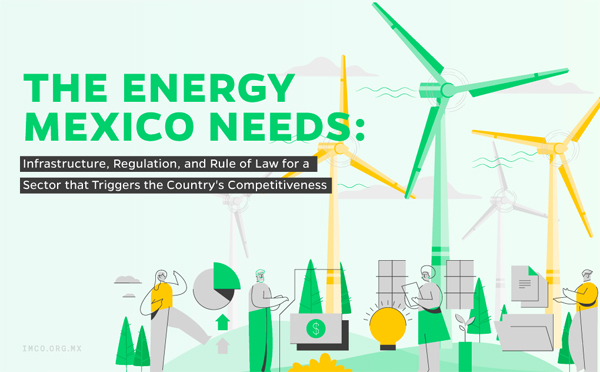
Sheky Espejo, Platts
MEXICO CITY
EnergiesNet.com 04 28 2023
As a country with a long manufacturing tradition, Mexico could take advantage of the relocation of production chains away from Asia, known as nearshoring, but it must take steps toward decarbonization or risk losing competitiveness, experts said during a set of panel discussions held in the week to April 27.
The country must also make investments in its hydrocarbons industry as old and new technologies will have to coexist as the global transition slowly gains momentum, experts said.
“Mexico has traditionally been at a competitive disadvantage in terms of power costs,” said Régulo Salinas, president of the Energy Commission at the Mexican Business Council CCE, the largest business lobby group.
Still today after many key reforms, companies based in Mexico are at a disadvantage to their competitors in the US: Mexico’s industrial power tariffs are 60% higher than the national average and twice as high as those in Texas, Salinas said on April 26 during a panel discussion organized by the national upstream association AMEXHI.
During a separate panel discussion on April 25, the national associations of wind and solar energies agreed that there are several challenges facing the country for the energy transition, but investments in transmission and distribution infrastructure are “at the top of the list”.

“There is no transition without transmission,” said Carla Medina, head of the national solar association Asolmex, during the event organized by research energy firm Rystad. Medina said the country would need to install an additional 37 GW of clean generation capacity in the next five years to meet its decarbonization goals, and that there was no room in the country for that additional capacity without new transmission lines.
According to Mexican law, the transmission and distribution businesses are reserved for state utility CFE.
Hydrocarbons not yet gone
Tania Ortiz Mena, Mexico’s country head at Sempra Energy, agreed that investments in transmission and distribution are essential and said the country must also look for diversification of its energy sources.
“All technologies will be relevant and all will have to coexist for a while in order to ensure the reliability of the grid as well as security,” Ortiz Mena said on April 26.
For Mexico to take advantage of nearshoring, it will be essential to make investments in natural gas, of which the country holds large reserves, said Angélica Ruiz, senior vice president for Latin America at BP.
According to BP’s global outlook, hydrocarbons will likely still retain a relevant share of the global energy needs of between 20% and 60% by 2050, Ruiz said.
Auctions needed
One way to develop the vast gas reserves in the country is to retake the auctions of blocks for exploration and production activities in the country, Ruiz said.
The auction rounds in Mexico, which liberalized the energy sector between 2015 and 2018, were canceled by the current administration. On April 26, during her speech to inaugurate the AMEXHI energy conference, Energy Secretary Rocio Nahle once more reiterated that there would be no new rounds during this administration.
Mexico must continue to develop its hydrocarbon reserves and more rounds could be one way to do this, said Sergio Limardo, general manager at Repsol Exploration Mexico.
AMEXHI said during the conference that exploration activity in Mexico will slow in the next few years as companies make final decisions on which areas to develop. Some areas, AMEXHI said, will be returned to the state, either because they have no resources or because the resources are not commercial under current conditions.
“Mexico will keep the data that has been produced during the first phase of exploration and evaluation which can contribute to the development of the areas,” Limardo said, adding that now there is the challenge to create value in a shorter period and in a sustainable way.
Martin Jungbluth, head of Wintershall Dea of Germany, agreed that more rounds were desirable to develop the vast resources of the country and said the successful synergies in the country between private companies and Pemex could be replicated.
“There are companies like us who are willing to invest in the country,” Jungbluth said.
Short-term thinking
To attract investments from nearshoring, Mexico will need to change its habit of short-term thinking and plan for the medium and long terms, said Silvia Hernandez, a politician from the right-wing Revolutionary Party (PRI), which governed the country uninterruptedly for over 70 years until 2010.
“The challenge ahead is strategic and energy must be at the heart of the political agenda,” said Hernandez, adding that whoever becomes the next president will have to take the decisions for the energy transition, she said on April 26.
So far, administrations have been able to “kick the can” on these decisions, but at some point, someone will have to make them, the experts noted.
“If we don’t take the right decisions the window of opportunity presented by nearshoring could close as quickly as it opened,” Hernandez said.
spglobal.com 04 27 2023












